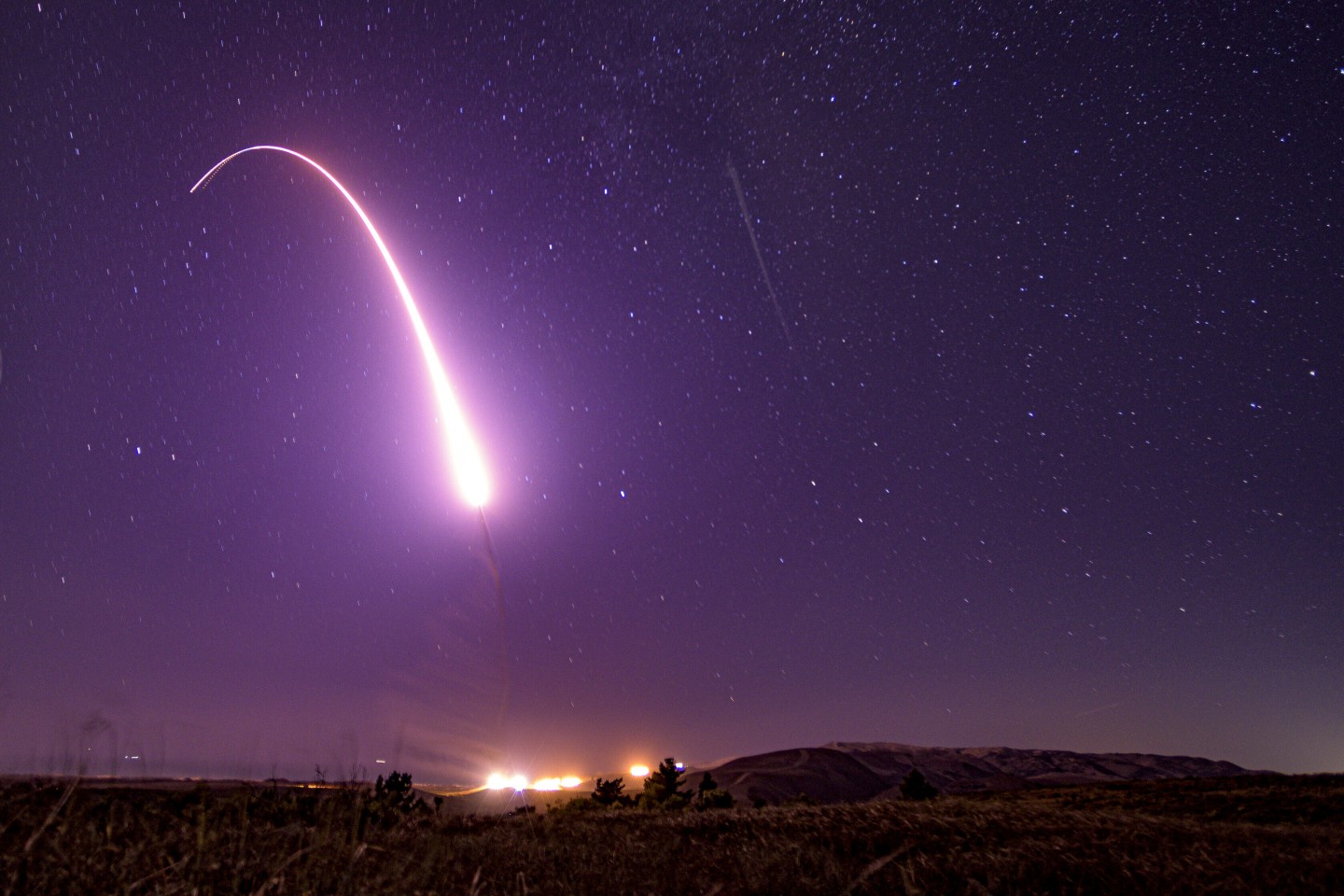Extension of the New START Treaty would offer Trump an easy diplomatic win.
ARTICLE & ANALYSIS BY: MICHAEL MCFAUL | washingtonpost.com

President Trump received Russian Foreign Minister Sergei Lavrov in the White House this week — a meeting that prompted considerable controversy, given the fraught backdrop of U.S.-Russia relations. Yet the coverage — additionally complicated by the impeachment proceedings taking place on Capitol Hill — almost entirely overlooked a crucial topic of the negotiations: the urgent need to keep alive a vital nuclear arms agreement.
Readouts and media reports reveal that Lavrov discussed the extension of the New Strategic Arms Reduction Treaty (START), set to expire in February 2021, with his American interlocutors. That’s the good news. The bad news is that Trump and Secretary of State Mike Pompeo both suggested that China must be included in a future strategic nuclear arms deal, hinting that they may not extend the New START Treaty without Chinese involvement.
That would be a major mistake. The United States and Russia should extend the New START Treaty, an outcome that clearly would serve U.S. national security interests. At the same time, U.S. arms control negotiators could begin discussions with their Chinese counterparts about a new, future multilateral treaty to limit the deployments of nuclear weapons. While doing so, they should recognize that China is already well below the limits on nuclear warheads and delivery vehicles specified by New START and thus need not be a party to this agreement.
But these two negotiations should be sequenced, not linked. Extend the New START Treaty with Russia first; begin strategy stability talks with Russia and China second.
Extension of the New START Treaty would offer Trump an easy diplomatic win. Signed by President Barack Obama and then Russian President Dmitry Medvedev in April 2010, and then ratified by the U.S. Senate in December 2010, the treaty limits the number of deployed strategic warheads to 1,550 and the number of deployed delivery vehicles (heavy bombers, intercontinental ballistic missiles and submarine-launched ballistic missiles) to 700. (Experts estimate that China today has only 290 warheads.)
The agreement also includes the most comprehensive inspections regimen of any treaty ever signed between Moscow and Washington. Importantly, the treaty placed no constraints on the deployments of missile defenses. Both the United States and Russia have complied with treaty deadlines, reaching the limits specified for warheads and delivery vehicles in 2018.
You can still destroy the planet with 1,550 nuclear weapons on each side. Although lower limits are desirable and should remain a long-term goal, the current state of U.S.-Russian relations makes it impossible to negotiate a new treaty. Extension is the next best option.
Extension of the New START Treaty would continue to cap the number of deployed nuclear weapons and delivery vehicles in the world — a desirable end in itself. Today, however, the New START Treaty limitations serve U.S. national interests because Russia is outpacing the United States in current investments in new nuclear weapons development. Notably, the New START Treaty limits allow us to catch up because they do not constrain the United States’ ongoing modernization program.
The preservation of the inspections regimen also helps to keep the peace. History is full of evidence demonstrating how destabilizing uncertainty surrounding an adversary’s capabilities can be; the lack of precise knowledge can cause military strategists to develop war plans based on worst-case scenarios.
The information we obtain from monitoring and verification is correspondingly invaluable for making accurate assessments of Russia’s nuclear capabilities. Our national security benefits from these levels of transparency. In negotiating with the Soviets, Ronald Reagan famously quipped, “Trust but verify.” Given the current state of U.S.-Russian relations, we should adopt a new slogan: “Don’t trust, only verify.” Extension of the New START Treaty would help us do just that.
If the United States fails to extend the New START Treaty, we will need to spend additional billions on deploying more nuclear weapons of little strategic value. In addition, the CIA, National Security Agency and other intelligence organizations will have to spend far more money gathering information about Russia’s nuclear modernization program — information that we can collect more easily and efficiently through the procedures codified in the New START Treaty.
Trump has spent the past three years discussing the need for better relations with Russia. Extending the New START Treaty would give him his first victory on this front. This is one area where I would applaud his success — since all Americans would benefit from it.
These days, I almost never agree with Russian President Vladimir Putin on any issue. I’ve even written a book explaining my disagreements with him and his actions and the need to confront and contain his regime. In turn, he has banned me from traveling to Russia, and his government has invented a crazy conspiracy about me, accusing me of violating Russian law during my work in the Obama administration.
Yet when Putin says that extending the New START Treaty is a good idea, I can only say that I wholeheartedly concur. Trump should, too.
